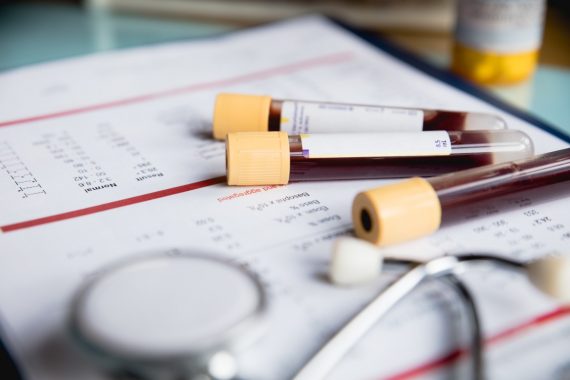Genetic testing for ovarian cancer to expand under NICE recommendations

Hundreds of thousands of people could be eligible for genetic testing for risk of ovarian cancer under new draft NICE guidance.
People who could be carriers, for example due to family history of breast or ovarian cancer, should be referred to genetics services for testing and offered counselling, the recommendations out for consultation state.
Risk scores will be used to assess the likelihood that a person carries a gene related to ovarian cancer and a much lower threshold applied for offering a test than currently in place, NICE said.
At the moment, people with a 10% probability of carrying a high-risk gene are tested, but this will be lowered depending on age and set at 2-3% for 30 to 59 year olds, NICE said.
Testing for one of nine pathogenic variants will be offered so patients can make decisions about potential management options and monitoring.
At the moment very few – thought to be around 3% – of those who have a high-risk gene know about it, NICE said.
The goal is to raise awareness and increase the availability of genetic testing so people can take preventive measures such as surgery, meaning fewer people will go on to develop ovarian cancer.
It is thoughts around 340,000 to 440,000 women in the UK carry one of the pathogenic variants that will be tested for, but it is not known how many men, trans women or non-binary people registered male at birth are at risk.
More information on this will become known as more people come forward for testing, NICE said.
Around 7,500 people are diagnosed with ovarian cancer every year in the UK with the highest rates in 75-79 year olds.
GPs should be aware that those from underrepresented or underserved communities may need support to access services, the guidelines point out, including those with physical disability, neurodevelopmental conditions or a learning disability, people from minority ethnic backgrounds and the LGBTQ+ community.
Women, trans men and non-binary people found to carry one of the genes should be offered information and support about the best option for reducing their risk of developing ovarian cancer, which will depend on the variant they carry.
The most effective intervention is surgery which should happen no earlier than age 35, or 45 depending on the type of gene that is found, NICE said.
In some cases, a hysterectomy may also be considered to reduce the risk of endometrial as well as ovarian cancer, the recommendations added.
People from Ashkenazi and Sephardic Jewish family backgrounds have a higher risk of carrying the BRCA1 and BRCA2 genes, with around 280,000 people from these backgrounds expected to be eligible for testing.
Professor Jonathan Benger, chief medical officer and interim director of the Centre for Guidelines, said: ‘We aim to raise awareness of people’s risk, helping them get the best supportive care and reducing the devastating impact ovarian cancer can have on people and their families.
‘While there will be an initial upfront cost associated with setting up multidisciplinary teams and increasing genetic testing, the risk reducing surgery we recommend could save lives while also saving the NHS money and resources in the long run.’
The guideline is open for publication consultation from until 27 October 2023.
Pulse July survey
Take our July 2025 survey to potentially win £1.000 worth of tokens

Visit Pulse Reference for details on 140 symptoms, including easily searchable symptoms and categories, offering you a free platform to check symptoms and receive potential diagnoses during consultations.











